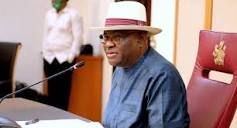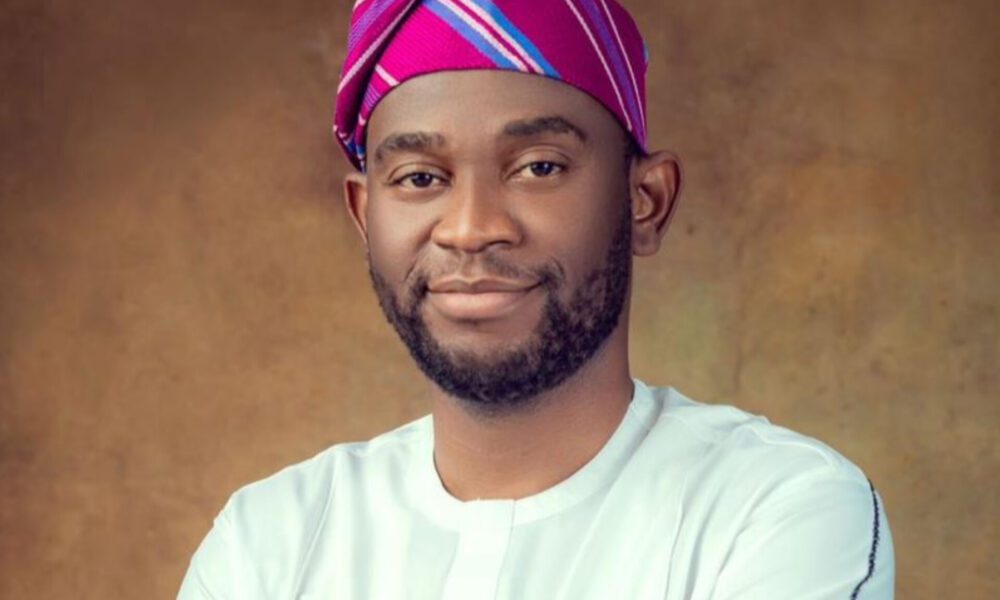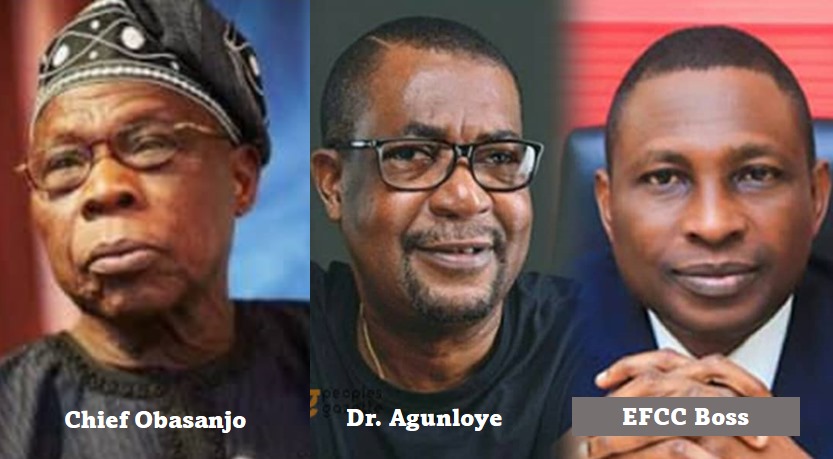By Tunde Olusunle
Wednesday October 13, 2022, Nyesom Ezenwo Wike, governor of the oil-and-gas-endowed Rivers State, wrote his name in the annals of Nigerian politics and governance. If indeed there was a Nigerian equivalent of the Guinness Book of Records, Wike’s appointment with one stroke of the pen, 28,000 Special Assistants, would qualify as a record-breaking entry. The previous day, Wike appointed 319 ward Liaison Officers, (WLOs) and 40 Local Government Area Liaison Officers, (LGALOs). Within a space of 24 hours therefore, Wike made 28,359 appointments, a milestone in the history of post-Fourth Republic era governance.
The immediate reaction of discerning followers of trends and developments in the state, was that Wike hurriedly made the appointments, to divert public attention from a fire he had just recently stoked. The Rivers State helmsman reportedly approved the engagement of about 500 new employees into the Rivers State University of Science and Technology, (RSUST). Of this number, it has been posited that over 400 are his Ikwerre kinsmen. If true, this is something he will have to promptly redress. We are told this is the reason he speedily made the mammoth appointments of WLOs and LGALOs, to be seen as “carrying along” every part of the state, as is often said in Nigerian political communication.

Public commentators are also quick to remind you that Wike is not doing his new army any favours. They are said to be youths recruited for electoral chores during the 2019 general elections. They were purportedly left in the lurch thereafter, but with the approach of the 2023 polls, they have been offered “contract employment” for which they will be richly rewarded by the free-giving Wike. They are said to be “bad boys” who will function as “ward leaders” and “polling unit leaders,” among other responsibilities. It has been further advanced that these youths will be purposely assigned the responsibility of “working against” the presidential candidate of the Peoples’ Democratic Party, (PDP), Atiku Abubakar.
There has been no love lost between Atiku and Wike since the latter lost the May 28 presidential primary of the PDP, which Atiku won. Atiku’s handling of the post-primary fall-outs should have been more statesmanly, especially given his credentials as a tactician and team player. The present impasse wouldn’t have come to being the way it has festered into the fifth month now. Wike also harbours angst against Atiku for bypassing him in his choice of running mate of the ticket, despite his strong showing at the primary, in which he posted a respectable second place. As the Yoruba saying goes, “the snake actually harbours legs inside its serpentine belly.”
Earlier this week, Wike was named by the administration of President Muhammadu Buhari, for conferment with a “Distinguished Award in Infrastructure Delivery.” In recent weeks and months though, Wike has been most visible in his confrontations and contestations with his party, PDP. Since that May presidential primary, neither the proverbial tree nor the visiting birds, have had a breather. Wike has relentlessly pursued the ouster of the National Chairman of his party, Iyorchia Ayu, who promised before the primary, to resign if the party produced a northern candidate. Yes, the PDP under Ayu’s watch produced Atiku Nigeria’s former Vice President who hails from the North East, as presidential flagbearer. Ayu himself is from the North Central. The ensuing stalemate engendered by Ayu’s insistence to serve out his four-year mandate, has impacted the party in parts.
Wike will receive a medal at the “Nigeria Excellence in Public Service Award” scheduled for Friday October 21, 2022, at the State House Banquet Hall, Abuja, at a ceremony to be performed by the President in person. This is according to a statement from the Office of the Secretary to the Government of the Federation, (OSGF), Boss Mustapha. Wike is being vested with this prize in acknowledgement of his notably single-minded pursuit of the infrastructural upgrade of his state, in the past seven and half years. Residents in, and visitors to Rivers State unanimously attest to the almost total transformation of the state into a sleepless construction site, under Wike.
Several roads, flyovers, drainages, hospitals, schools, residential structures, sand-filled swathes of land in the predominantly riverine topography of the state, university campuses, are in place today, courtesy of Wike’s efforts. Indeed, as with his record-shattering absorption of 28,000 Special Assistants, Wike presently holds the record of embarking on and completing the highest number of flyovers ever constructed by any government, anywhere in Nigeria. And he achieved these within a span of eight years. He is building the 11th and 12th simultaneously, as part of his parting infrastructural souvenirs for his people.
He has partnered several ministries, departments and agencies, (MDAs), in the development of requisite infrastructures, in uncommon generosity and large-heartedness. The “Body of Benchers,” the National Judicial Council, (NJC); the Niger Delta Development Commission, (NDDC); Akwa Ibom State Government, (AKSG), all attest to Wike’s good heart. Significantly, Wike’s government engages the most qualified and competent contractors in the industry, including German giants, Julius Berger Plc, which also executes major projects for the federal government.
It is a measure of his confidence in his endeavours, that he runs a roster of distinguished invitees, either to flag off, or to commission completed projects. A very impressed Vice President Yemi Osinbajo never hesitated to confer the sobriquet “Mr Projects” on one of his official visits to Rivers State. Whether the proposed decoration of Wike by the President, in what is very obviously a rare, if not novel “award category” is underlined by political considerations will be interrogated subsequently. Wike no doubt is most deserving of the award.
Of late, there has been a flurry of developments to suggest points of convergence between Wike and the topmost echelons of the opposition All Progressives Congress, (APC). Meetings have reportedly been held between Wike and flagbearer of the APC, Bola Ahmed Tinubu. The Wike administration also recently dropped its charges against his predecessor, Chibuike Rotimi Amaechi of the APC, regarding the latter’s unaccounted for sale of valuable assets belonging to Rivers State, while in office. Hitherto, Wike rarely had any business with the State House, despite his frequency in the nation’s capital. The forthcoming investiture is taking him there after a long stay-off.
To be sure, Wike sparsely attends meetings of the National Council of States, (NCS) which is traditionally chaired by the President, and the National Economic Council, (NEC), led by the Vice President, respectively. He has repeatedly noted the fact that his brief is to administer Rivers State, and not to be posing for photographs all over Abuja. It will be interesting to see how Buhari receives Wike at the proposed event, against the background of his consistent and unsparing critiques, lampoons and lacerations of Buhari and his regime. The handshakes, mutual smiles and body language of both men at the ceremony, should fascinate discerning press photographers.
Wike’s Port Harcourt home has become something of a political ‘Mecca’ in recent weeks and months. At various times, he has received the presidential flagbearers of opposition parties like Peter Obi of the Labour Party, (LP) and Rabiu Musa Kwankwaso of the New Nigeria Peoples’s Party, (NNPP). Wike, whose angst against the establishment of his party is shared by four of his colleagues, has repeatedly assured though, that like them, he wouldn’t be dumping his party. With Seyi Makinde of Oyo; Samuel Ortom of Benue; Ifeanyi Ugwuanyi of Enugu and Okezie Ikpeazu of Abia, Wike has jetted abroad severally to hold “strategic meetings.” These regular escapes to Europe and elsewhere, have fuelled speculations that the “five musketeers” must be hatching killer schemes. Things shouldn’t have gotten this bad if, to quote Ortom’s often repeated expression: “The internal mechanisms for conflict resolution within the party were not pursued and deployed.”
Of these five gentlemen, Wike is the only one who is not running for elective office in 2023. Makinde is seeking a second term in Oyo State, where in the political history of the geopolity, only the late Christopher Adebayo Alao-Akala, broke the jinx of “single term governorships.” Ortom, Ugwuanyi and Ikpeazu are all contesting for places in the “10th Nigerian Senate.” Ikpeazu in particular, has his work cut out. Local intelligence suggests he hasn’t covered himself in glory, into the last seven months of his governorship.
Abia political stakeholders are also very bitter about his single-handed distortion of the rotational template of the gubernatorial seat. Beginning from “Abia North” with Orji Uzor Kalu, through Theodore Ahamaefule Orji in “Abia Central” and Ikpeazu from “Abia South,” the ticket was supposed to return to the North. Ikpeazu, however, opted for a candidate, Uchenna Ikonne, from his own Abia South. He is ranged against the formidable Enyinnaya Harcourt Abaribe, who crossed over to the All Peoples’ Grand Alliance, (APGA), when he was denied the PDP senatorial ticket. Abaribe who is vying for the position for a fourth term, is a tested warrior.
Ortom has become a symbol of opposition and resistance to Fulani adventurism and expansionism, in Benue State. He is very vocal and loved by his people who have festooned him with the title Defender of the Benue Valley. He desires the senatorial seat to represent “Benue North West,” presently occupied by Emmanuel Orker Jev. Ortom has restated his commitment to the PDP/Atiku project, but some of his constituents will rather he clearly redefines his relationship with Wike. They wouldn’t want to be estranged from the “centre,” if the PDP wins the presidential election. Let’s hope the quartet-Makinde, Ugwuanyi, Ortom and Ikpeazu, do not get too engrossed with their individual political pursuits to continue their “placard carrying” protestations in support of their ally.
When the history of Nigeria’s fourth republic is catalogued, Wike’s name will pop up as one of the poster boys of the era. And this is the more reason he needs to be circumspect. His ascendancy has been sure-footed and steady. Beginning from the position of LGA Chairman, he graduated to becoming Chief of Staff to Amaechi in the latter’s first term as Governor. He was catapulted to the federal level, where he became Minister of State for Education. For about six months, he functioned as “Supervising Minister” of the Ministry, at the same time his friend, Ortom was also “Supervising Minister” for Aviation, both under the Goodluck Jonathan administration. He is serving out his second term as Governor of Nigeria’s second richest state, Rivers, next only to Lagos State. In this latter position, he is one of very few governors privileged to fly a private jet, wholly owned by the government of his state. Now you know why his regular foreign trips with his “comrades,” come with seamless convenience at the snap of the fingers. As I write this, the crew is probably airborne!
Wike has been a virtual government pikin, who by May 2023, would have grossed 24 unbroken years of service to fatherland. This deservedly calls for thanksgiving. But he needs to watch his every step hereafter so he can proceed henceforth, in a blaze of glory. Through this odyssey, the PDP has been Wike’s sole career ladder and political elevator. I’ve heard it said before, that we must not kick or discard the escalators which propped us to the top. That would be thoughtless ingratitude. This is the more reason why Wike must rethink his options as 2023 politicking hots up, against the backdrop of his often repeated threat to “teach them (his offenders), a lesson they will never forget.”
I’ve heard it said before, that “24 hours is a long time in politics.” This holds promise for fence-mending between Wike and his “traducers” in the subsisting intra-party stalemate. It will be advisable that Atiku maximises this window for decisive rapprochement, to ensure that all the troops come under the common “umbrella.” I’ve noted in an earlier article I wrote on this same subject, that Atiku and Wike must sit together and dialogue on the same table. I imagine Wike will be better off under the same umbrella he flourished beneath, and helped to keep afloat, protect and preserve in recent years. He knows his bedfellows under the umbrella, they know him.
By now he should be fully cognizant of the wiles of that average politician, especially the desperate one, who needs you as special purpose vehicle to reach his immediate destination. He is only long on platitudes, pledges and promises, before the ballot. He must be wary of new, sugar-tongued suitors and spontaneous friends. Post-inauguration, many politicians moult into a new existence in political purdah. Their faces are subsequently glimpsed, only from LED television screens. Wike should watch his steps. He might as well ask Godswill Akpabio, Rotimi Amaechi or Emeka Nwajiuba the last time they had lunch with President Buhari, after the APC presidential primary.
Tunde Olusunle, PhD, poet, journalist, scholar and author, is a Member of the Nigerian Guild of Editors, (NGE).*




